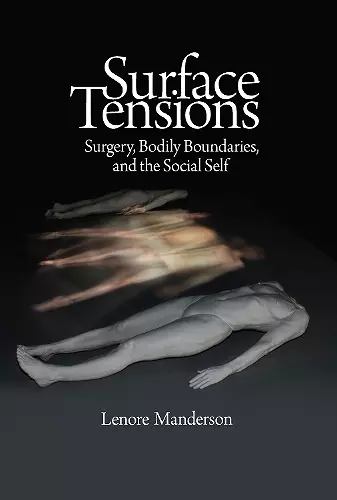Surface Tensions
Surgery, Bodily Boundaries, and the Social Self
Format:Hardback
Publisher:Left Coast Press Inc
Published:1st Oct '11
Currently unavailable, and unfortunately no date known when it will be back
This hardback is available in another edition too:
- Paperback£42.99(9781611320985)

Surface Tensions is an expansive, yet intimate study of how people remake themselves after catastrophic bodily change—the loss of limbs, the loss of function, the loss or replacement of organs. Against a sweeping cultural backdrop of art, popular culture, and the history of science and medicine, Manderson uses narrative epistemology based on in-depth interviews with over 300 individuals to show how they re-establish the coherence of their bodies, identities, and biographies. In addition to offering important new insights into the care, rehabilitation, and rehabituation of post-trauma patients, Manderson’s work challenges conventional ideas about the nature of embodiment and is an important contribution to medical anthropology, disability studies, and cultural studies.
"...Lenore Manderson's informants have so much to tell her. The author is not out to soften the often painful directness of their stories, but foregrounds what it is that hurts. In the process, Surface Tensions does not simply describe the world, but also changes it. It interferes in our collective body image. It alters our shared insights in what human bodies are, do and need."... -- Annemarie Mol, Professor of Anthropology of the Body, University of Amsterdam "Surface Tensions offers a glimpse into the world of post-operative bodies, exploring both the harrowing challenges of bodies disfigured by life-saving surgeries and technologies, and the heartening sense of perseverance among those who must learn to live in new ways with their missing parts and/or prostheses. By focusing on the tensions that lie on the modified body's surface--at once cultural, relational and intuitive--Manderson has masterfully rejuvenated an anthropology of the body and enlivened the field of disability studies. This is a stunning ethnography and cultural study of subjectivity in the lives of those who deal with amputation, stoma, mastectomy, and transplant, and a refreshing treatise on how medicine changes what it means to be human."-- Prof. Vincanne Adams, Anthropology, History, and Social Medicine, UCSF School of Medicine "...This book richly imagines the cultural meaning, possibilities, creativity, and losses involved in the increasingly cyborgian experiences now altering the surface of many lives in rich nations. Lenore Manderson helps us to imagine what comes next by first making palpable what actually existing altered bodies and their avant-garde artistic and filmic representtions portend. We will all benefit from her insights."...-- Rayna Rapp, New York University "...Anthropologist Manderson has produced a rich book examining how people manage transformed identities after surgery. Based on in-depth interviews, the book also considers representations in popular culture and film and artistic works from sculpture to performance art that challenge bodily boundaries and identity. There are chapters on managing stoma and ostomy appliances, living with transplants and long-term dialysis, postmastectomy identity and sexuality, and life after amputations. The empirically rich book explores in depth ideas about cyborgs and subjectivity, the issue of surfaces and prostheses, and the boundaries of the self. Somewhat disconnected from key issues in disability studies, this is nonetheless an important text for medical anthropology, gender studies, and related studies of embodiment in contemporary society. Summing Up: Recommended. Graduate students, faculty."... - J. L. Croissant, University of Arizona, CHOICE "Lenore Manderson's Surface Tensions is a must for any social scientist interested in body, medicine, disability, gender, and processes of social construction of various embodied phenomena. The book shows how identity is socially related with the physical body, and how social selves are made 'flat' through disabled bodies. They become 'flat' as the lack (of body part or function) comes to the front of social interaction and determines course. The numerous advantages of the book has significantly influenced my way of thinking about disability and alterated bodies."-- Dominika Byczkowska, Qualitative Sociology Review
ISBN: 9781611320978
Dimensions: unknown
Weight: 612g
295 pages